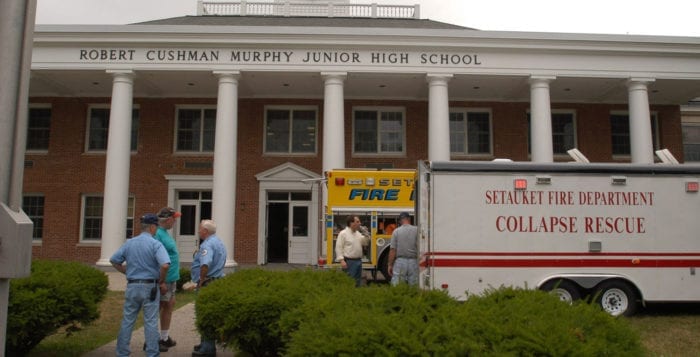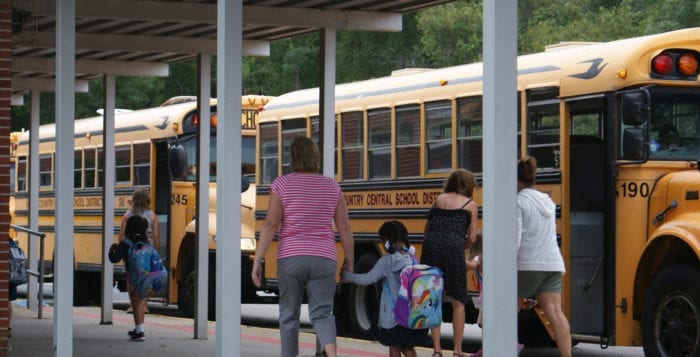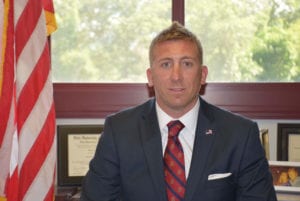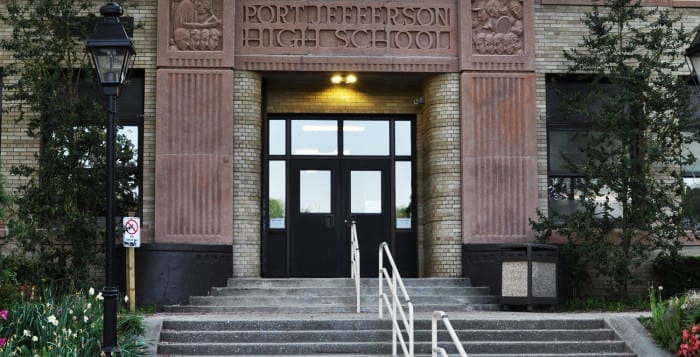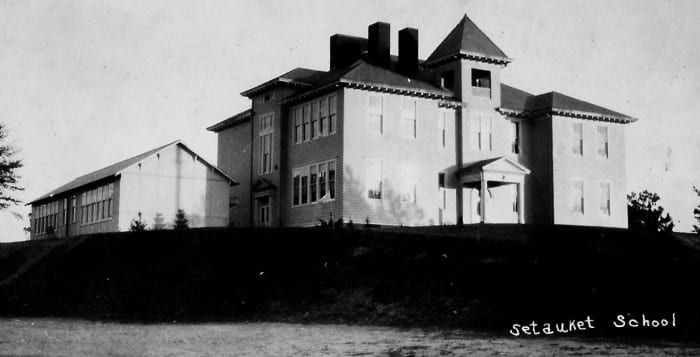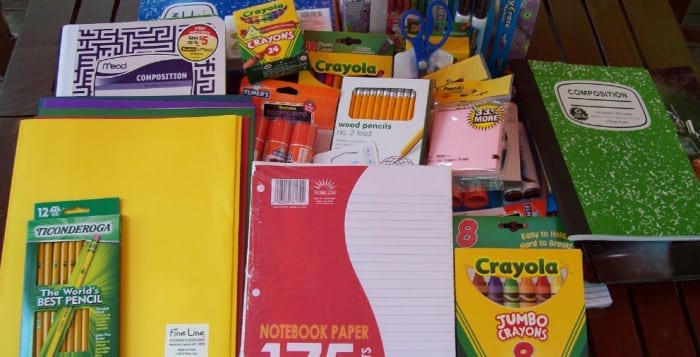By Kevin Redding
Brookhaven Town leaders are determined to stamp out what they’ve deemed an illegal eyesore in Mount Sinai — a commercial retail area turned industrial facility on Route 25A near the entrance to the school district campus. Officials said by being there, the owners and tenants of the property are willfully violating town zoning codes and damaging quality of life in the process.
During a press conference Aug. 22, town Supervisor Ed Romaine (R), along with town officials and a civic leader, stood across from a fenced-in lot where concrete is crushed and dozens of the Asplundh Construction company’s trucks, as well as poles and large spools of cable, are stored.

Romaine said the type of activity on the property, which is owned by Nkp Properties LLC, of Farmingdale, is illegal under J-2 zoning and is restricted to industrial property only — a fact he said Nkp is aware of as it paid a town-issued fine of $4,000 in April. Despite paying the fine and pleading guilty to violating the town code, Nkp continues to use the property. The group was met with more fines July 24, which included a ticket for a second offense of the code violations and for not having site plans to try and legalize the activities on the site.
According to the town’s deputy attorney, David Moran, the attorney for Nkp at the time “acknowledged that the use was not appropriate and said he was going to try to get all the necessary site plans and approvals in.”
No one from Asplundh Construction returned phone calls for a request for comment, and visits to the site for questions were directed back to the telephone number.
Officials during the press conference called on the company, a subcontractor of PSEG and LIPA, to vacate the property as soon as possible.
“The parents that drop their children off at the school, employees and civic members— residents in Mount Sinai certainly don’t appreciate what’s going on across the street from us.”
—Jane Bonner
“The last time I looked, LIPA was a public utility whose subcontractor is willfully flouting zoning laws in the Town of Brookhaven,” Romaine said. “That type of zoning violation is one we will not stand for. We are particularly concerned because this is adjacent to the Mount Sinai schools. We’re asking that they come into compliance or we have to take further action.
The property was previously the site of a party equipment rental business. When Asplundh moved in, a structure on the site was demolished.
Councilwoman Jane Bonner (C-Rocky Point) said it’s negatively impacting the town.
“One of the things that the Mount Sinai community is desirous of is a corridor that is user-friendly and appealing to the eye,” Bonner said, looking at the Nkp property behind her. “I’ve been in office almost 10 years and for the past eight years, the property behind me has been a constant source of complaints from the community, the parents that drop their children off at the school, employees and civic members. Residents in Mount Sinai certainly don’t appreciate what’s going on across the street from us.”
Bonner said she would like to settle this problem before the start of the new school year. More than 30 Asplundh trucks, she said, drive in and out of the lot every morning, which can become a safety concern once buses join Route 25A traffic.
Ann Becker, president of the Mount Sinai Civic Association, also expressed her concerns.
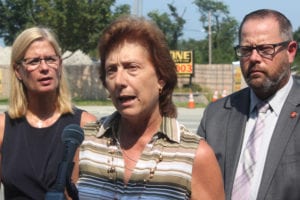
“The civic, which recently celebrated 100 years, has been working to maintain the quality of life here in Mount Sinai for all that time and we continue to do so, and we continuously get complaints about this location and now it’s becoming even worse than it was before,” Becker said. “We’re really wanting to have nice businesses here and we’ve done a lot of work on beautification … what’s happening behind us is absolutely against everything the civic has stood for.”
She said she hopes the current owners ultimately cease and desist so that the location is turned into something more appropriate for the community.
Moran said he believes the businesses will try to get away with the violations as long as they can in order to maximize every dollar out of it to help fund construction projects.
“From a prosecutorial standpoint these types of flagrant violations will not be tolerated in the Town of Brookhaven,” he said. “You can’t just buy property and use it to your will. We have codes that must be followed and, in this instance, I can assure you that we will ensure that they follow our codes.”


